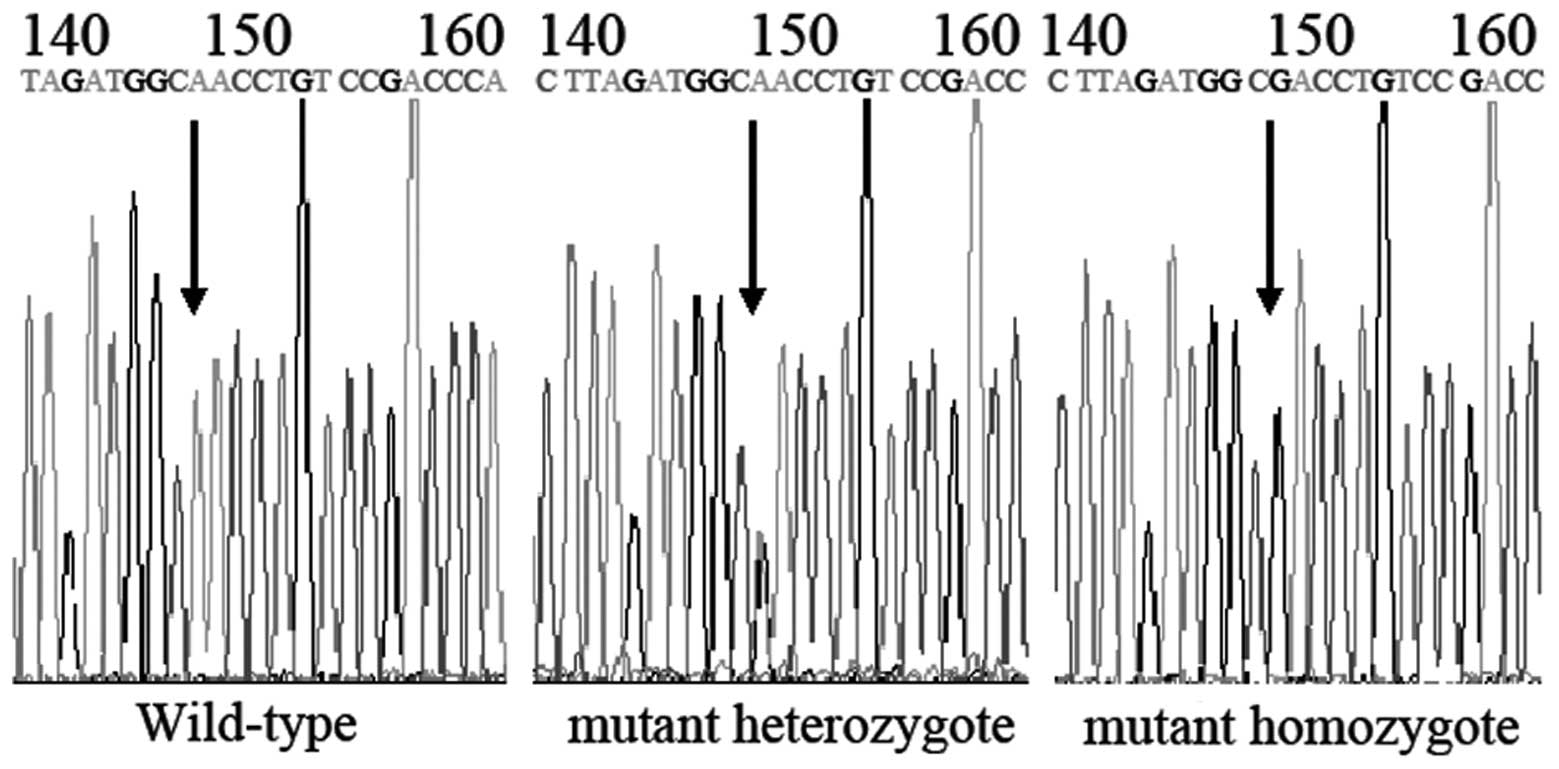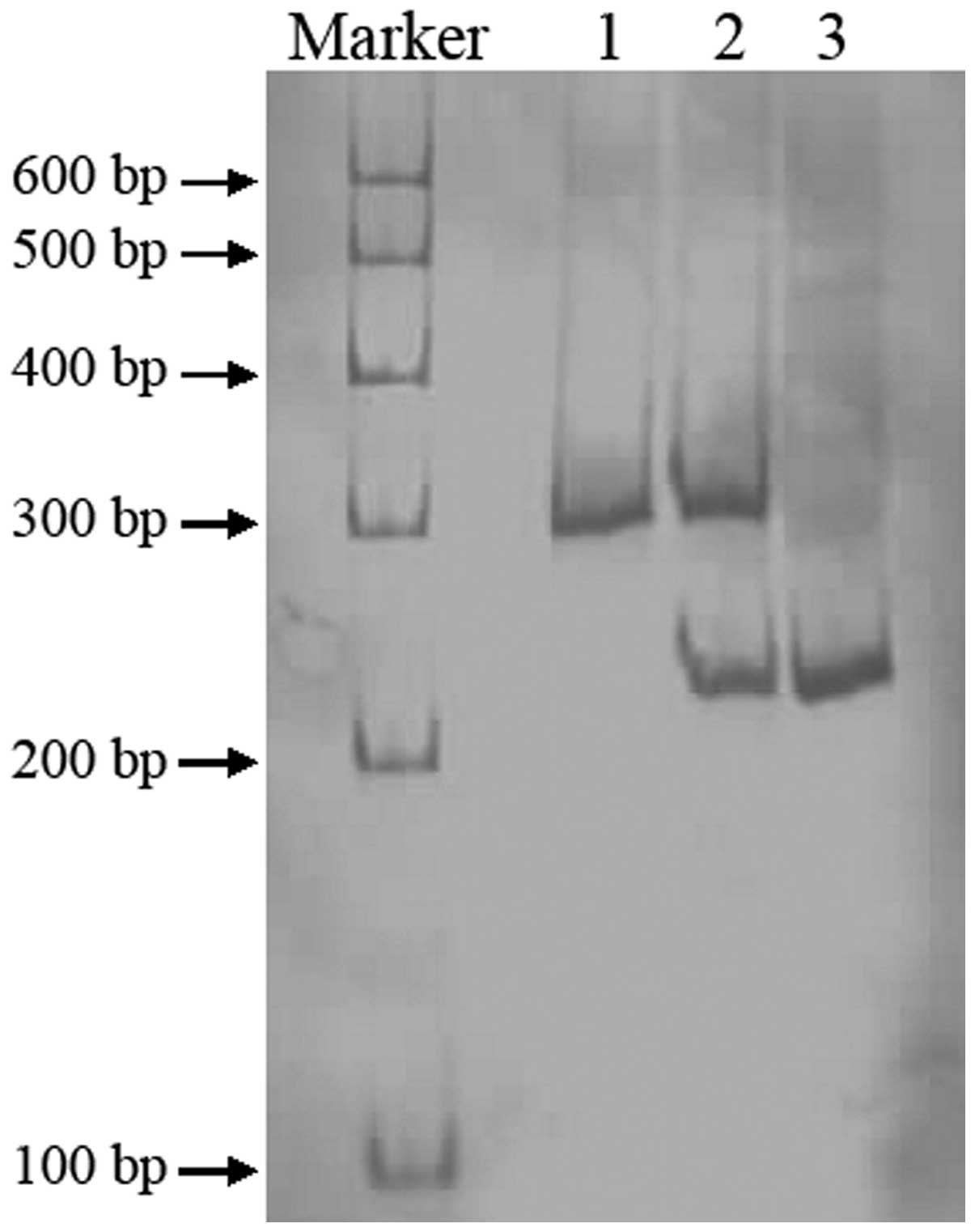|
1
|
Ikeda K, Ide S, Han W, Hayashida M, Uhl GR
and Sora I: How individual sensitivity to opiates can be predicted
by gene analyses. Trends Pharmacol Sci. 26:311–317. 2005.
View Article : Google Scholar : PubMed/NCBI
|
|
2
|
Evans WE and McLeod HL: Pharmacogenomics -
drug disposition, drug targets and side effects. N Engl J Med.
348:538–549. 2003. View Article : Google Scholar : PubMed/NCBI
|
|
3
|
Weinshilboum R: Inheritance and drug
response. N Engl J Med. 348:529–537. 2003. View Article : Google Scholar : PubMed/NCBI
|
|
4
|
Hu YF, Qiu W, Liu ZQ, et al: Effects of
genetic polymorphisms of CYP3A4, CYP3A5 and MDR1 on cyclosporine
pharmacokinetics after renal transplantation. Clin Exp Pharmacol
Physiol. 33:1093–1098. 2006. View Article : Google Scholar : PubMed/NCBI
|
|
5
|
Feierman DE and Lasker JM: Metabolism of
fentanyl, a synthetic opioid analgesic, by human liver microsomes.
Role of CYP3A4. Drug Metab Dispos. 24:932–939. 1996.PubMed/NCBI
|
|
6
|
Tateishi T, Krivoruk Y, Ueng YF, Wood AJ,
Guengerich FP and Wood M: Identification of human liver cytochrome
P-450 3A4 as the enzyme responsible for fentanyl and sufentanil
N-dealkylation. Anesth Analg. 82:167–172. 1996.PubMed/NCBI
|
|
7
|
Labroo RB, Paine MF, Thummel KE and
Kharasch ED: Fentanyl metabolism by human hepatic and intestinal
cytochrome P450 3A4: implications for interindividual variability
in disposition, efficacy and drug interactions. Drug Metab Dispos.
25:1072–1080. 1997.PubMed/NCBI
|
|
8
|
Agrawal V, Choi JH, Giacomini KM and
Miller WL: Substrate-specific modulation of CYP3A4 activity by
genetic variants of cytochrome P450 oxidoreductase. Pharmacogenet
Genom. 20:611–618. 2010. View Article : Google Scholar : PubMed/NCBI
|
|
9
|
Fukushima-Uesaka H, Saito Y, Watanabe H,
et al: Haplotypes of CYP3A4 and their close linkage with CYP3A5
haplotypes in a Japanese population. Hum Mutat. 23:1002004.
View Article : Google Scholar : PubMed/NCBI
|
|
10
|
Hu YF, Tu JH, Tan ZR, et al: Association
of CYP3A4*18B polymorphisms with the pharmacokinetics of
cyclosporine in healthy subjects. Xenobiotica. 37:315–327.
2007.
|
|
11
|
Yuan R, Zhang X, Deng Q, Wu Y and Xiang G:
Impact of CYP3A4*1G polymorphism on metabolism of fentanyl in
Chinese patients undergoing lower abdominal surgery. Clin Chim
Acta. 412:755–760. 2011.
|
|
12
|
Zhang W, Chang YZ, Kan QC, et al:
CYP3A4*1G genetic polymorphism influences CYP3A activity and
response to fentanyl in Chinese gynecologic patients. Eur J Clin
Pharmacol. 66:61–66. 2010.
|
|
13
|
Walter C and Lötsch J: Meta-analysis of
the relevance of the OPRM1 118A>G genetic variant for pain
treatment. Pain. 146:270–275. 2009. View Article : Google Scholar : PubMed/NCBI
|
|
14
|
Zhang W, Chang YZ, Kan QC, et al:
Association of human micro-opioid receptor gene polymorphism A118G
with fentanyl analgesia consumption in Chinese gynaecological
patients. Anaesthesia. 65:130–135. 2010. View Article : Google Scholar
|
|
15
|
Fukuda K, Hayashida M, Ide S, et al:
Association between OPRM1 gene polymorphisms and fentanyl
sensitivity in patients undergoing painful cosmetic surgery. Pain.
147:194–201. 2009. View Article : Google Scholar : PubMed/NCBI
|
|
16
|
Hayashida M, Nagashima M, Satoh Y, et al:
Analgesic requirements after major abdominal surgery are associated
with OPRM1 gene polymorphism genotype and haplotype.
Pharmacogenomics. 9:1605–1616. 2008. View Article : Google Scholar : PubMed/NCBI
|
|
17
|
Wong CA, McCarthy RJ, Blouin J and Landau
R: Observational study of the effect of mu-opioid receptor genetic
polymorphism on intrathecal opioid labor analgesia and
post-cesarean delivery analgesia. Int J Obstet Anesth. 19:246–253.
2010. View Article : Google Scholar : PubMed/NCBI
|
|
18
|
Klepstad P, Fladvad T, Skorpen F, et al;
European Palliative Care Research Collaborative (EPCRC); European
Association for Palliative Care Research Network. Influence from
genetic variability on opioid use for cancer pain: a
Europeangenetic association study of 2294 cancer pain patients.
Pain. 152:1139–1145. 2011. View Article : Google Scholar : PubMed/NCBI
|
|
19
|
Landau R, Kern C, Columb MO, Smiley RM and
Blouin JL: Genetic variability of the mu-opioid receptor influences
intrathecal fentanyl analgesia requirements in laboring women.
Pain. 30:5–14. 2008. View Article : Google Scholar : PubMed/NCBI
|
|
20
|
Reyes-Gibby CC, Shete S, Rakvag T, et al:
Exploring joint effects of gene and the clinical efficacy of
morphine for cancer pain. Pain. 130:25–30. 2007. View Article : Google Scholar : PubMed/NCBI
|
|
21
|
Kolesnikov Y, Gabovits B, Levin A, Voiko E
and Veske A: Combined catechol-O-methyltransferase and mu-opioid
receptor gene polymorphisms affect morphine postoperative analgesia
and central side effects. Anesth Analg. 112:448–453. 2011.
View Article : Google Scholar : PubMed/NCBI
|
|
22
|
Spielberger CD: Manual for the State-Trait
Anxiety Inventory. Consulting Psychologists Press; Palo Alto,
California, USA: 1983
|
|
23
|
Zung WW: A self-rating depression scale.
Arch Gen Psychiatry. 12:63–70. 1965. View Article : Google Scholar : PubMed/NCBI
|
|
24
|
Dong ZL, Li H, Chen QX, et al: Effect of
CYP3A4*1G on the fentanyl consumption for intravenous
patient-controlled analgesia after total abdominal hysterectomy in
Chinese Han population. J Clin Pharm Ther. 37:153–156. 2012.
|
|
25
|
Tan PC, Hassan SK, Mohamad NA and Gan SH:
Cytochrome P450 3A4 genetic polymorphisms and post-operative
fentanyl requirements. J Clin Pharm Ther. 37:100–104. 2012.
View Article : Google Scholar : PubMed/NCBI
|
















